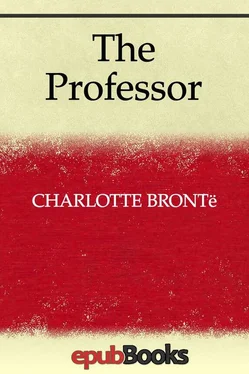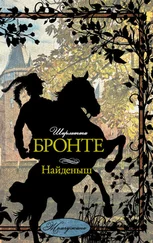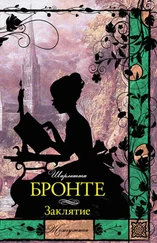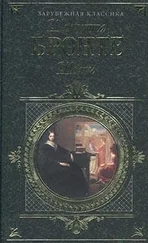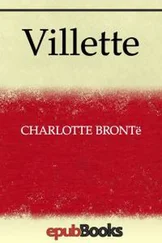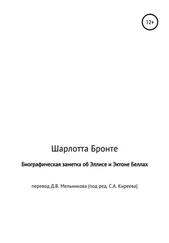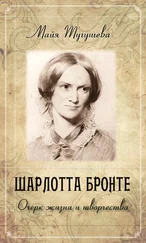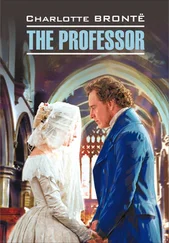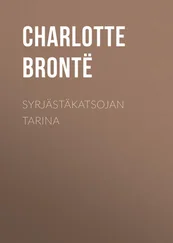Шарлотта Бронте - The Professor
Здесь есть возможность читать онлайн «Шарлотта Бронте - The Professor» — ознакомительный отрывок электронной книги совершенно бесплатно, а после прочтения отрывка купить полную версию. В некоторых случаях можно слушать аудио, скачать через торрент в формате fb2 и присутствует краткое содержание. Год выпуска: 2014, Издательство: epubBooks Classics, Жанр: Классическая проза, на английском языке. Описание произведения, (предисловие) а так же отзывы посетителей доступны на портале библиотеки ЛибКат.
- Название:The Professor
- Автор:
- Издательство:epubBooks Classics
- Жанр:
- Год:2014
- ISBN:нет данных
- Рейтинг книги:3 / 5. Голосов: 1
-
Избранное:Добавить в избранное
- Отзывы:
-
Ваша оценка:
- 60
- 1
- 2
- 3
- 4
- 5
The Professor: краткое содержание, описание и аннотация
Предлагаем к чтению аннотацию, описание, краткое содержание или предисловие (зависит от того, что написал сам автор книги «The Professor»). Если вы не нашли необходимую информацию о книге — напишите в комментариях, мы постараемся отыскать её.
The Professor — читать онлайн ознакомительный отрывок
Ниже представлен текст книги, разбитый по страницам. Система сохранения места последней прочитанной страницы, позволяет с удобством читать онлайн бесплатно книгу «The Professor», без необходимости каждый раз заново искать на чём Вы остановились. Поставьте закладку, и сможете в любой момент перейти на страницу, на которой закончили чтение.
Интервал:
Закладка:
"Victor rests well: he smiled in his sleep; he has your smile, monsieur."
The said Victor was of course her own boy, born in the third year of our marriage: his Christian name had been given him in honour of M. Vandenhuten, who continued always our trusty and well–beloved friend.
Frances was then a good and dear wife to me, because I was to her a good, just, and faithful husband. What she would have been had she married a harsh, envious, careless man—a profligate, a prodigal, a drunkard, or a tyrant—is another question, and one which I once propounded to her. Her answer, given after some reflection, was—
"I should have tried to endure the evil or cure it for awhile; and when I found it intolerable and incurable, I should have left my torturer suddenly and silently."
"And if law or might had forced you back again?"
"What, to a drunkard, a profligate, a selfish spendthrift, an unjust fool?"
"Yes."
"I would have gone back; again assured myself whether or not his vice and my misery were capable of remedy; and if not, have left him again."
"And if again forced to return, and compelled to abide?"
"I don't know," she said, hastily. "Why do you ask me, monsieur?"
I would have an answer, because I saw a strange kind of spirit in her eye, whose voice I determined to waken.
"Monsieur, if a wife's nature loathes that of the man she is wedded to, marriage must be slavery. Against slavery all right thinkers revolt, and though torture be the price of resistance, torture must be dared: though the only road to freedom lie through the gates of death, those gates must be passed; for freedom is indispensable. Then, monsieur, I would resist as far as my strength permitted; when that strength failed I should be sure of a refuge. Death would certainly screen me both from bad laws and their consequences."
"Voluntary death, Frances?"
"No, monsieur. I'd have courage to live out every throe of anguish fate assigned me, and principle to contend for justice and liberty to the last."
"I see you would have made no patient Grizzle. And now, supposing fate had merely assigned you the lot of an old maid, what then? How would you have liked celibacy?"
"Not much, certainly. An old maid's life must doubtless be void and vapid—her heart strained and empty. Had I been an old maid I should have spent existence in efforts to fill the void and ease the aching. I should have probably failed, and died weary and disappointed, despised and of no account, like other single women. But I'm not an old maid," she added quickly. "I should have been, though, but for my master. I should never have suited any man but Professor Crimsworth—no other gentleman, French, English, or Belgian, would have thought me amiable or handsome; and I doubt whether I should have cared for the approbation of many others, if I could have obtained it. Now, I have been Professor Crimsworth's wife eight years, and what is he in my eyes? Is he honourable, beloved ―?" She stopped, her voice was cut off, her eyes suddenly suffused. She and I were standing side by side; she threw her arms round me, and strained me to her heart with passionate earnestness: the energy of her whole being glowed in her dark and then dilated eye, and crimsoned her animated cheek; her look and movement were like inspiration; in one there was such a flash, in the other such a power. Half an hour afterwards, when she had become calm, I asked where all that wild vigour was gone which had transformed her ere–while and made her glance so thrilling and ardent—her action so rapid and strong. She looked down, smiling softly and passively:—
"I cannot tell where it is gone, monsieur," said she, "but I know that, whenever it is wanted, it will come back again."
Behold us now at the close of the ten years, and we have realized an independency. The rapidity with which we attained this end had its origin in three reasons:— Firstly, we worked so hard for it; secondly, we had no incumbrances to delay success; thirdly, as soon as we had capital to invest, two well–skilled counsellors, one in Belgium, one in England, viz. Vandenhuten and Hunsden, gave us each a word of advice as to the sort of investment to be chosen. The suggestion made was judicious; and, being promptly acted on, the result proved gainful—I need not say how gainful; I communicated details to Messrs. Vandenhuten and Hunsden; nobody else can be interested in hearing them.
Accounts being wound up, and our professional connection disposed of, we both agreed that, as mammon was not our master, nor his service that in which we desired to spend our lives; as our desires were temperate, and our habits unostentatious, we had now abundance to live on—abundance to leave our boy; and should besides always have a balance on hand, which, properly managed by right sympathy and unselfish activity, might help philanthropy in her enterprises, and put solace into the hand of charity.
To England we now resolved to take wing; we arrived there safely; Frances realized the dream of her lifetime. We spent a whole summer and autumn in travelling from end to end of the British islands, and afterwards passed a winter in London. Then we thought it high time to fix our residence. My heart yearned towards my native county of ―shire; and it is in ―shire I now live; it is in the library of my own home I am now writing. That home lies amid a sequestered and rather hilly region, thirty miles removed from X―; a region whose verdure the smoke of mills has not yet sullied, whose waters still run pure, whose swells of moorland preserve in some ferny glens that lie between them the very primal wildness of nature, her moss, her bracken, her blue–bells, her scents of reed and heather, her free and fresh breezes. My house is a picturesque and not too spacious dwelling, with low and long windows, a trellised and leaf–veiled porch over the front door, just now, on this summer evening, looking like an arch of roses and ivy. The garden is chiefly laid out in lawn, formed of the sod of the hills, with herbage short and soft as moss, full of its own peculiar flowers, tiny and starlike, imbedded in the minute embroidery of their fine foliage. At the bottom of the sloping garden there is a wicket, which opens upon a lane as green as the lawn, very long, shady, and little frequented; on the turf of this lane generally appear the first daisies of spring—whence its name—Daisy Lane; serving also as a distinction to the house.
It terminates (the lane I mean) in a valley full of wood; which wood—chiefly oak and beech—spreads shadowy about the vicinage of a very old mansion, one of the Elizabethan structures, much larger, as well as more antique than Daisy Lane, the property and residence of an individual familiar both to me and to the reader. Yes, in Hunsden Wood—for so are those glades and that grey building, with many gables and more chimneys, named—abides Yorke Hunsden, still unmarried; never, I suppose, having yet found his ideal, though I know at least a score of young ladies within a circuit of forty miles, who would be willing to assist him in the search.
The estate fell to him by the death of his father, five years since; he has given up trade, after having made by it sufficient to pay off some incumbrances by which the family heritage was burdened. I say he abides here, but I do not think he is resident above five months out of the twelve; he wanders from land to land, and spends some part of each winter in town: he frequently brings visitors with him when he comes to ―shire, and these visitors are often foreigners; sometimes he has a German metaphysician, sometimes a French savant; he had once a dissatisfied and savage–looking Italian, who neither sang nor played, and of whom Frances affirmed that he had "tout l'air d'un conspirateur."
What English guests Hunsden invites, are all either men of Birmingham or Manchester—hard men, seemingly knit up in one thought, whose talk is of free trade. The foreign visitors, too, are politicians; they take a wider theme—European progress—the spread of liberal sentiments over the Continent; on their mental tablets, the names of Russia, Austria, and the Pope, are inscribed in red ink. I have heard some of them talk vigorous sense—yea, I have been present at polyglot discussions in the old, oak–lined dining–room at Hunsden Wood, where a singular insight was given of the sentiments entertained by resolute minds respecting old northern despotisms, and old southern superstitions: also, I have heard much twaddle, enounced chiefly in French and Deutsch, but let that pass. Hunsden himself tolerated the drivelling theorists; with the practical men he seemed leagued hand and heart.
Читать дальшеИнтервал:
Закладка:
Похожие книги на «The Professor»
Представляем Вашему вниманию похожие книги на «The Professor» списком для выбора. Мы отобрали схожую по названию и смыслу литературу в надежде предоставить читателям больше вариантов отыскать новые, интересные, ещё непрочитанные произведения.
Обсуждение, отзывы о книге «The Professor» и просто собственные мнения читателей. Оставьте ваши комментарии, напишите, что Вы думаете о произведении, его смысле или главных героях. Укажите что конкретно понравилось, а что нет, и почему Вы так считаете.
